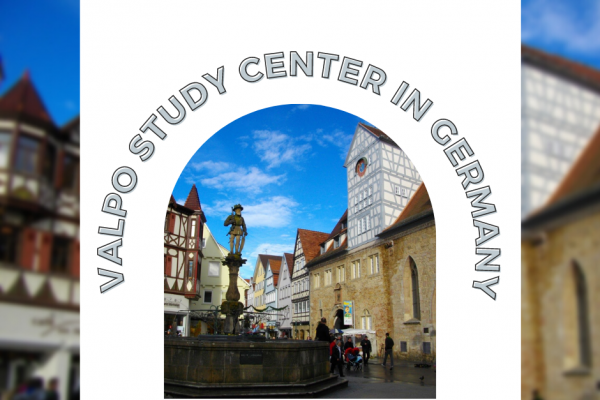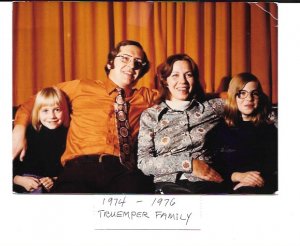Reutlingen
History Of The Program
Albers, James. “The Center at Reutlingen, Germany.” The Cresset: A Review of Literature, the Arts, and Public Affairs. 36:3 (January, 1973): 8-10.
Dr. James Albers served as the fourth director of the Reutlingen Study Center (1972-1974).
Describing the Reutlingen program is easier than describing the “Reutlingen experience.” Innumerable, incidental, and unclassifiable experiences add up to a total experience which is more than the sum of the structured parts.
This article attempts to describe the objectives and structures of the Reutlingen Study Center. As such the description is no more a reflection of the significance of the program for the lives of the participants than a description of a skeleton is a reflection of the challenge, exhilaration, frustration, and pulsation of life itself.
The general objective of the program, at least to this writer’s understanding, is to provide a structure for learning in which formal academic study is combined with personal observation and experience of European culture, so that their mutual stimulation results in an enrichment greater than if both were done separately.
The Reutlingen Study Center may be described literally as a “center of learning.” This means simply that the Study Center is a center or base for a semester of continuous learning, which occurs throughout Europe, but more in Reutlingen than anywhere else.
The Reutlingen Study Center is located on the campus of the Pädagogische Hochschule, for obvious reasons known even to local residents as the “PH” (pronounced pay-ha). The PH is a school with university status in the German educational system and specializes in the training of teachers. Founded about ten years ago, the school now has approximately 3000 students. The Valparaiso Study Center is given the use of a PH classroom and the director is provided with an office.
The Study Center is an center of academic learning. Currently students may choose from six courses offered under the auspices of Valparaiso University. By special arrangement students may also attend and receive credit for courses offered by the PH itself or by its sister institution, the University of Tübingen, which is fewer than ten miles away.
The curriculum of the Center is designed with two basic objectives. The first is to provide courses which are general enough in nature so that as many students as possible may participate in the program. Secondly the courses are chosen for their appropriateness in helping students to know and appreciate historical and contemporary European culture.
Specifically, the curriculum is currently composed of two German language course, two German history courses, a humanities course, and a theology course. The two German courses are offered at two different levels to accommodate students with different levels of proficiency. A minimal proficiency in German is necessary to enable the student to benefit from the opportunities which a semester in German offers. German, incidentally, is spoken extensively in several countries other than Germany, for example, Switzerland, Austria, and Czechoslovakia. These courses are taught more intensively during the first part of the semester, so that maximum proficiency can be achieved as quickly as possible. One German history course covers the sixteenth century, while a second course covers the period from 1800 to the present.
A humanities course focuses on the history of European art, architecture, and music. This course enables students who have had little exposure to the arts to begin to appreciate what Europe has to offer, which is, of course, a great deal. The course is structured so that those who have had previous experience in these areas also benefit. The humanities course is taught by a team of three instructors. A theology course includes units describing the church in Germany and the church’s encounter with Marxism. The courses in theology and sixteenth century German history are taught by the current director. The other courses are taught by German professors.
Research papers are usually not assigned in any of the courses, although occasional book reports are required. Tests are required in all courses, including final examinations. The exception to this rule is the humanities course, in which students are required to keep a notebook of lectures, textbook reading, and personal observations and reflections. The notebooks are examined and graded. The notebook is returned to the student, thereby providing the student with a permanent record of many European experiences.
Specific programmatic correlation between academic learning and experiential learning is made through several group study trips. Each trip has specific objectives related to the content of one or more of the courses. A three day trip is made to Strasbourg, Colmar, Freiburg, and the Lake Constance area for the purpose of studying Romanesque, Gothic, and Baroque art and architecture. An art instructor usually accompanies the group on this trip.
A second trip is made to Italy, primarily to explore the art and architecture of ancient Italy. Included in this trip are visits to Florence, Venice, Pisa, and Milan. Rome, Ravenna, and other cities are included on different itineraries as time and interest permit. Eight days is the usual duration.
A third trip, lasting twelve days, is made through East Germany, Berlin, and Czechoslovakia. In East Germany visits are made to several sites of importance for the history of sixteenth century Germany, particularly the Reformation. For example, the Luther House in Eisenach, the Wartburg Castle, and the Luther buildings in Wittenberg, are toured. Also included are stops in Weimar, Buchenwald, Leipzig, Dresden, Potsdam, and, of course, East Berlin. These places are of special significance for modern Germany history. During the five days in West Berlin, local leaders provide lectures on the recent history and current situation of Berlin. These lectures are also directly related to the course in modern German history.
The tour of East Germany and Czechoslovakia provides an opportunity to view the nature of living conditions in two socialist countries. The opinions of citizens of these countries are most interesting. The total impact of this trip virtually demands that every student reexamine the strengths and weaknesses of both socialist and capitalist societies. To do so requires an honest confrontation and examination of one’s own values and commitments. The confrontation is not quickly resolved, and often provides grist for future academic work and reflection.
Students are encouraged to travel on their own. Reutlingen’s location in central Europe, approximately thirty miles south of Stuttgart, affords easy accessibility to most of Europe. Within fewer than four hours students can be in France, Switzerland, or Austria, and almost any place in southern Germany. Personal travel is facilitated by the structuring of a three and a half day academic week. This shortened week is made possible because students usually register for twelve credit hours, three less than the normal academic schedule on the home campus. The alternation of several days of travel with several days of formal study provides students with frequent opportunities to reflect on their travel experiences, a luxury which few tourists can afford. For various reasons, including academic ones, students do not usually travel every weekend of the semester; nor are they always away for the entire weekend.
Each semester usually includes a two week period during which students may travel extensively. Greece, Africa, Scandinavia, and even Russia are frequent destinations. This period is usually placed in the last half of the semester, by which time students have become inveterate travelers.
Traveling in Europe can be relatively simple and inexpensive for students. Sleeping in youth hostels costs about one dollar per night. A student rail pass is valid for almost all of the frequent and efficient European railway systems. Students are almost invariably also given reduced admissions at places of cultural interest.
Planning is essential. Students are encouraged at the beginning of the semester to formulate tentative travel objectives and itineraries. Guides and other materials are made available so that potential destinations may be researched. Advance study affords the opportunity to make maximum use of travelling time. Students are encouraged to formulate itineraries which complement the group study trips.
Learning is confined neither to the classroom nor to travelling. Unlike American universities, German universities do not provide students with housing. In the case of the PH, a partial substitution is provided. Two student apartment buildings owned by a semi-private housing organization in Reutlingen and one by the Church of Württemberg, accommodate approximately one hundred students each. The study Center is fortunate to have twenty permanent spaces in these buildings. Most Study Center students have German roommates who usually provide excellent guides to German culture.
Since the PH operates a cafeteria only for the noon meal, students must prepare their own breakfasts and suppers in one of the kitchens. These are located on each floor and shared by all residents of the floor. The kitchen with its adjacent dining area is frequently the place where students of the Center can meet German students. It is also a good place to obtain vital information regarding the purchase and preparation of German food, or even a lesson in basic cooking. Occasionally German students invite the American students to their homes, an opportunity which almost no one passes up.
A comment concerning the spiritual dimensions of the program is also appropriate. Although Students are encouraged to participate in worship services in the community and on the campus of the PH, weekend travel does not always make such participation possible. The directors of the Reutlingen Study Center have so far all been clergymen in the Lutheran Church – Missouri Synod, and have provided pastoral services for students. An important feature is the regular celebration of the Eucharist.
The director of the Study Center is a resource person who stands ready to assist and advise in any way possible.
That is the skeleton. To put flesh on it would have required hundreds of vignettes. Each, though only a small glimpse into the Reutlingen experience, would have illustrated an experience which contributed in some way to the process of maturation. The incident may have revealed increased self-reliance, a broader vision of the world, a deeper insight into the nature of people, or a more sensitive appreciation of the world in which we all live.
The significance of the “Reutlingen experience” naturally varies according to the uniqueness of each participant. Yet this writer has yet to meet one participant who has not felt that the Reutlingen experience was eminently instructive and worthwhile.
Reutlingen is a center of learning; perhaps this is why students are so enthusiastic about the program.
Comments from Former Directors
Grűß Gott, besonders an R-10, R-11, R-12, R-13!
Who had the greater adventure? — students or the Albers family? No Albers had flown before boarding a 747 Lufthansa in Chicago bound for Frankfurt. Except for Canada, none of them had traveled outside the US. Six years as residence director in Brandt Hall had truly been an adventure, but the prospect of living in Germany for two years with a family of five–the youngest were 9, 6, and 4 —war ein sehr grosses Abenteuer. It was the time before the PC, let alone e-mail or skype. Trans-Atlantic telephone was for extreme emergencies. Many students also had limited experience, and often had misgivings which usually intensified upon arrival. Most had little confidence in their German and were reluctant to venture into the halls and kitchens of Litt, Wurm, or Reichwein and risk their shaky German, but hunger always conquered angst!
While misgivings were common and understandable, most students adjusted with one or two “nights” sleep, orientation, a walking tour of Reutlingen, followed by the one-day Albrundfahrt to the monastery at Bebenhausen, Rathaus in Tübingen, Hohenzollern and Lichtenstein castles, and a few other places, eventually ending up zum Hirsch in Würtingen, for Teller Salat, Pommes frites, Schnitzel und Getränke. Homesickness and self-doubt ebbed, especially with a week-end trip guided by a humanities instructor through the Black Forest to Freiburg, then across the Rhine to Colmar (Grünewald altar triptych), then to the Bodensee, the island of Mainau, across to the north shore and Reichenau with its Carolingian Romanesque church, followed by a few Barockstrasse churches. Staying in youth hostels on this trip engendered enough experience and confidence to venture out independently and use a fast developing Wortschatz—zum Beispiel, Schlafsack, Grenze, Ausweis, Geldwechseln, Speisekarte, Preisinclusiv, Montags geschlossen, und Mittagspause.
These trips and those to Berlin/East Germany and Italy were via chartered bus and provided wonderful opportunities for group bonding, short pre-site lectures, a good venue for local guides to share information and Q & A. Unlike the German trains, our bus actually waited for those who were late. Busfahrer Herr Werner Ganter guided his bus through impossibly tight spots and turns, coached us on in-bus behavior for borders crossings, and was an informal cultural commentator.
Trips created memorable and practical lessons in comparative political systems. Students talked with East German students in Leipzig and Weimar youth hostels. They experienced East German border guards pass through the bus and confiscate dangerous literature such as Time or the International Herald Tribune. One group heard a distraught elderly guide at the Lutherhaus in Eisenach lament revocation of his travel permission to visit relatives in West Germany. Three students had grown respectable beards only to have their identities challenged by a Czech border guard. The bus wasn’t going anywhere until their “true identity” could be verified.! No electric razor on board, so a half canister of shaving cream, safety razors, cold running water, and a half hour later, our trio reappeared. The guard never re-checked their passports. Dobry den! Welcome to the CSSR!
Hitch-hiking was still relatively safe, especially in pairs or trios. Many purchased rail passes and used them well. A long overnight could spare a Jugendherberge! Some co-eds, however, noted that riding the trains in Italy was problematic and bought inexpensive rings to appear engaged or married. The oil embargo of 1973 created inflation and pressured travel budgets. Especially affected was R-13, whose Italy trip was canceled although many traveled there on their own.
Monday night gatherings in the director’s apartment began with a folk service, with student guitar accompaniment and was followed by telling of tellable travel tales [we never heard everything!]–how strangers had gone out of their way to drop them off, had bought them meals, and even invited them into their homes. Some described their “travels on assignment,” that is, to view firsthand the object of their humanities paper—a painting, a sculpture, or a church. Monday gatherings also meant distributing copies of the Torch faithfully sent by Prof. Martin Schaefer, sharing other news, celebrating birthdays, and enjoying Frau Albers’ homemade desserts.
Classroom instruction gave eyes to see and ears to hear. The following were on staff during these two years: Fr. Weingärtner (German), Professors Wolf Brixner (German), Meinert Meyer (German), Hans-Christoph Rublack (German History), Zagermann, Jürgen Paul, Lohrmann, and Jürgen Zänker (Humanities). The very gracious Frau Prof. Dr. Annemarie Christiansen was our very attentive and helpful behind the scenes support and liaison with the PH.
Whether for a semester, as in the case of most students, or four semesters for Familie Albers, none of us left unchanged. We came to appreciate much about German and European culture, we learned much about the US by viewing it from the outside and having to explain it (e.g., Vietnam, Nixon, Watergate) to non-Americans. Perhaps, most important, we all learned much about ourselves, including that some risk-taking was essential; inadvertently saying something funny was not the end of the world; and that we often had no choice but to trust strangers which in turn taught us to befriend others.
Then . . . we all left . . . changed . . . for the better! We were now free to move around the world . . . and most of us did!
(SUBMITTED 09/06/2018)
Over the years since 1974 – 1976, when David was named the Director of the Reutlingen Program, we often talked about the fact that it was the most broadening life experience we could have had as we raised our young family. It’s significance remains with us as we continue to travel, learn and see the world, to this day.
It’s impossible for me to say what Dave would be contributing toward the comments for this occasion if he were still with us. He died on Oct. 30, 2004. Vividly, however, I remember the time in 1975 when Dave was invited to deliver the sermon during a Sunday service at the Marienkirche zu Reutlingen. This is where we worshiped during our stay. This family was very proud of him. The relationships between the Americans and Germans from the PH and of the City of Reutlingen were very important to him. Dave’s fluency in the German language worked in his favor in that regard.
With much anticipation we awaited the arrival of new students cach semester. Our daughters, Pamela and Rebekah, were ages nine and six when we arrived in Germany and eager to meet new older “soon to be” friends. As for me, I found myself thriving in the new roles I claimed. The friendships in all aspects of life lived in that beautiful country sustained me and still bring joy to my heart. I recollect several gals (students) who wanted to come over and exercise” together on our apartment floor. It seems a couple of extra pounds on each of us needed to go away. Who would give up “Ritter Sport?” That was the question as I had it stashed all around the apartment In fact, right now, I have two Ritter Sport on my kitchen counter, a gift from my niece who lives in Germany and visited me last week. It brings me joy, to this day.
(SUBMITTED 08/26/2018)
We were the only faculty/family to have been directors at both Overseas Centers, as far as I know. I believe we introduced several innovations that were followed year after year at both Centers. My husband came directly after Don Mundinger at Cambridge and he was the one to suggest that directors serve for two years instead of just one. A single year did not seem to be enough to make and then keep, most importantly, connections and friendships with British staff and faculty. I believe my husband hired some English faculty for various courses.
He introduced to organized trips throughout England during breaks and he took the students to the Continent for the first time. These trips were not merely touristic outings but also vivid lessons about history, geography, architecture and various forms of art. They were also eye openers for students who have never been outside the United States.
In those first years our own and well as the students’ accommodations were very basic, one might say primitive, especially in regard to bathrooms and kitchens. Our house was poorly furnished, the walls did not necessarily meet in the corners and so newspaper had to be stuffed in, and my kitchen was tiny and totally impractical. Nonetheless, we invited students for home cooked meals, we loved to go to market and buy fresh produce especially mushrooms, and we enjoyed the company of our young people.
By the time we reached Reutlingen several years later, the program was well established and the students lived in a dormitory near our apartment. We continued to conduct bus tours and we especially stressed that our free American students have a look at what it is like to live in East Germany. For many it was a shock as it should have been. I remember that my husband stressed before departure that everyone must be especially careful of their behavior and their conversation as we were entering a repressive and potentially dangerous country. And naturally, they did not enjoy the thorough and rude scrutiny we underwent at the border crossing. Nevertheless, on one occasion, (one only!), one of our students thought it wise to bring along a copy of Mein Kampf for the trip….
They were impressed by the difference between life in the East and the West, could not fathom anything like that previously, and were mighty happy when we crossed back to West Berlin.
We were fortunate to have a wonderful German staff who were kind and interested in our American students. I understand that the program underwent some changes after our time but we enjoyed our chance to be abroad with our kids from Valpo.
The Overseas Program was innovative and interesting when it was established and many, many young people got an opportunity to see finally the world at large and not be limited to what they experienced up to that point in America.
(SUBMITTED 08/01/2018)
For those of you who do not yet know of our loss, Walt is now in the celestial wings watching us. On his behalf let me offer thanks to all who made the two remarkable years in Reutlingen so indelible for us both. First of all, the dear, dear funny, energizing, clever students with whom we grew. Next, the Brixners, Feinäugles, Herr Rublack, Axel von Criegern and Renate Loeffler, whose wisdom, wit, and academic acumen enriched us daily, one-on-one and en masse! Oh, and so many others … the scores who navigated our students through many internships, the families that adopted them for a semester and longer, and all whom I have forgotten to mention!
God willing, I’ll be so happy to join you on the big day in September …
(SUBMITTED 07/25/2018)
“Great students, Great times, Great memories!”
-Michael, Sigrid, Kirsten & Heike
(SUBMITTED 08/24/2018)
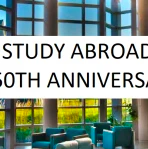 |
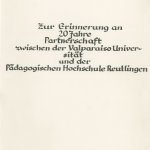 |
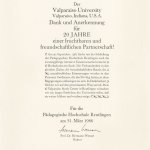 |
|---|---|---|
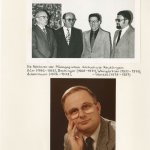 |
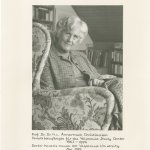 |
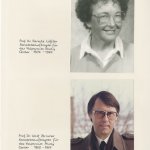 |
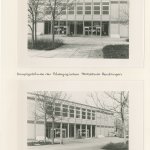 |
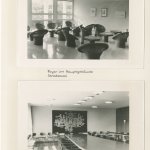 |
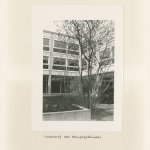 |
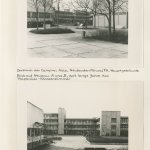 |
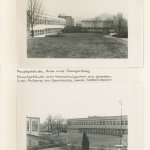 |
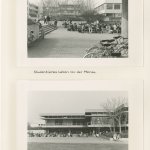 |
 |
 |
 |
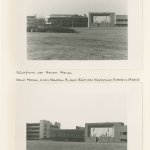 |
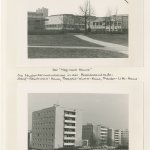 |
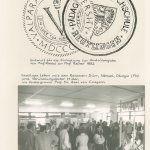 |
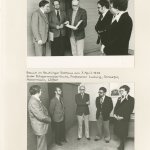 |
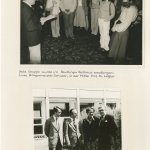 |
Although students proclaimed that they study at the Reutlingen Study Center to learn about German life and culture, they often defined Germany as the land beyond Reutlingen. It was as if the fascinating city of Reutlingen were merely a place to depart from and return to. We believe that with some success we encouraged our students to appreciate their residential city and the surrounding Schwäbisch Alb by employing the Albrundfahrt bus trip to introduce local places of interest e.g. Zwiefalten Münster & brewery, quaint towns on the Alb, and the mostly Jewish cemetery at Buttenhausen. Together we climbed the Achalm mountain for a panoramic view of Reutingen and the Alb culminating in a dinner of Schwäbish dishes at the Achalm restaurant. We also contracted with a local teacher-historian, Herr Bay, who escorted each group on a city walking tour, and provided historical details for Reutlingen landmarks in the Stadt Zentrum including the Marienkirche and the Heimatmuseum. Frau Bay, a home economics teacher, graciously opened their home to V.U. students where they experienced “a real German home” that included local treats like Mutscheln. In an ongoing effort to bring our students in contact with Reutlingen citizens, we arranged for our students to meet with then Rektor Obieglo of the Fachhochscule für Technik und Wirtschaft, a Notar, and a college professor as contact families and as Sprachpartners. These contacts resulted in dinners and even a skiing trip to the Alps, but when the students’ interest in travel reached fever pitch, interest in the contact families decreased precipitously.
The directors and several student volunteers gathered V.U.-owned books which had been stored in several wardrobes in various buildings, on book shelves in the classroom, and in the directors’ apartment. These were organized in a room provided by the F. H. as the study center library. In addition, travel information including brochures, maps, and guides were made conveniently available to the students. The collection was not equivalent to a proper academic library, but students had access to a library of mostly English-language books which could help them in classes, fill idle moments with pleasure reading, and improve their German with language books.
The Director’s apartment is spacious, convenient to campus, and generally well-appointed with furnishings, but after more than two decades of use, it required maintenance. We purchased a significant assortment of improvements from bedding to numerous physical upgrades like patching holes in walls and newly painted walls. However, the kitchen was the main improvement. It was essentially stripped bare and renewed with new cabinets, sink, all new appliances including a dishwasher, exhaust hood over stove and a microwave oven. For the first time ever a proper kitchen table was installed. We arrange with V.P. Dorothy Smith to finance the complete upgrade of the kitchen from special funds she granted the program after viewing the apartment on a fact-finding visit.
For us personally, we had a splendid time during our two years directing the Reutlingen Study Center program. Friendships were made that are still strong decades later. We had the good fortune to be in residence when the Berlin Mauer {wall) was breached, and the two Germanys were uniting. Our group trips were to Trier, to Berlin, and to Prague. The Berlin trip meant actually traveling into East Berlin (DDR.), where we even met with six young Germans to hear their reaction to life under Communism. By chance, were visiting Prague the very weekend of the “Velvet Revolution”, and our Czech guide was a young law student who took our students and us to the law school building, which was the very headquarters of the revolution! We were fortunate to experience history and not just read about it. We were grateful to have been chosen at this time. I am pleased to have been the first scientist to have had the opportunity to direct the Reutlingen study center.
(SUBMITTED 08/16/2018)
Three memories apply to all four RT groups that I had the privilege of knowing.
- The first memory is the count-down to the arrival of each group. I can recall sitting at dinner with Rick saying “They are boarding the plane now” or waking up in the night knowing that the touch-down in Frankfurt or Stuttgart was coming up in just a few hours. Your excitement must have been even greater, but Rick and I were excited too, especially since we knew that this was a first trans-Atlantic flight for most of you!
- The second memory concerns the first ten days of each semester: your orientation began small (a walk downtown on your first evening to keep you awake and to get your first legal beer), built slowly (a trip to the grocery with your own Einkaufstasche, followed a day later by your first train trip – to Tübingen), gained traction at the memorable wine-tasting in Möglingen (what a way to build group solidarity!), and reached a peak with the trip to Berlin via the Wartburg, Weimar, Leipzig, and Wittenberg. By the end of the 10 days you all knew how to figure out a subway system, ride a train, and find your way around Europe: and all that without the internet!
- Finally I remember the dinner we hosted at our apartment on the Sunday evening after your two-week breaks. Rick made a giant pot of lentil soup and we bought a case of wine and many big loaves of rye bread. We wanted to feed you (remember that stores were always closed on Sunday in those days!) and hear about your trips, but (to tell you the truth!) we also wanted to count noses. In those days there was no constant communication and you were truly on your own. It was gratifying to learn how much you were able to do on your own and in small groups.
Other memories are semester-specific. Singing Mozart’s Queen of the Night aria at the top of our lungs in the streets of Berlin after opera night (Spring 1996 –Erica Wilke leading!); Paul Senne guessing the number of corks Rick and I had accumulated in 16 months (Fall 1996 at the end-of-semester dinner out – there were hundreds of corks); the duos in Spring 1997 (two siblings, two cousins, and an engagement during spring break!); the shoes that some of you (Trisha? Tacia? Kristen?) left outside your dorm room doors for St. Nikolaus (or me!) to put chocolate into – I had only mentioned the holiday once in August, but in December the shoes dutifully appeared!
I’ve remained connected to Reutlingen over the years, having developed (with Eric Johnson, another former Reutlingen Director and now Dean of Engineering) the Engineering/German double major called VIEP and a comparable double major with International Business called EIB. Both programs take our students to Reutlingen for a full year. And of course my own research often takes me to Tübingen, Munich, or elsewhere in Germany with regularity. I hope that the time all of you spent in Germany and the friendships you developed there have remained an important memory for you too and that many of you have had the chance to return.
(SUBMITTED 07/21/2018)
One of my most vivid memories of Reutlingen and Southwestern Germany was during a trip that one of our student groups took to Burg Hohenzollern, the ancestral residence of the Prussian branch of the House of Hohenzollern. The House of Hohenzollern is the former ruling dynasty of the Kingdom of Prussia and the German Empire. As the students were posing for a group photograph on the steps of the souvenir shop inside the castle walls, a tall, handsome, rather sophisticated-looking young German man exited the doorway, and he began chatting with the students. I looked up to see the flag that was flying over the fairy castle we were visiting, and realized that the flag was that of the House of Hohenzollern. That meant that the head of the house was in residence. Indeed, the young man chatting with the students was none other than Georg Friedrich himself, the Prince of Prussia. He posed for a few photographs with the group, graciously answered a number of questions posed by the students, and then was on his way, undoubtedly off to perform some princely duties required of his station.
(SUBMITTED 26/09/2018)
Many of my most pleasant memories are of the excursions, both near and far, I enjoyed with the R70-73ers as those trips allowed me to truly get to know the students on a more personal level. I also vividly recall the local people who supported our program in ways both large and small. Our faculty (Wolf and Olga Brixner, Walter Springer, Baldur Veit) provided our students with experiences that went well beyond the classroom and what was expected. People not connected with VU were also very supportive and helpful throughout my stay. As an example, two of our music students were given a key to the Evangelische church across the street by the pastor in order to be able to practice on the organ whenever they wanted (the same church my oldest daughter was confirmed in). A coach driver, on his own initiative and time, returned to Frankfurt with a student to retrieve an item left on an aircraft. I could go on with such examples given the warmth and hospitality exhibited by locals with respect to our program and my family.
I am most thankful for the experience my five children had while in Germany as living abroad opened their eyes up to a broader world and various cultures and perspectives. Having developed a sense of aefintyr (ie, Old Norse, unbounded curiosity), they all have had numerous study-abroad home-stay experiences since their time in Germany – China (2), India (4), Malawi, Japan, Peru. Two have lived and worked abroad for several years – American Samoa, Japan.
(SUBMITTED 07/27/2018)
Being the Reutlingen Study Center Director was a transformative experience both for myself and my family. I thoroughly enjoyed sharing the study abroad experience with all the students each semester. I loved seeing Germany through their eyes while also getting to know each of them at a more personal level than I could have back at Valpo. There are so many fond memories both in Reutlingen and on the various excursions. Some of these include: Singing Karaoke at KaiserHalle; Caving in Budapest; Celebrating Fasching in Rottweil; Visiting Sanssouci in Potsdam; Playing basketball each week at the SportHalle. There are too many memories to list but they will always be treasured.
I can’t thank Wolf and Olga Brixner, Walter Springer and Baldur Viet enough for their guidance while we were in Germany and the passion they had for our students. They really made the study abroad experience meaningful. I am also thankful that I was able to be in Germany when our first cohorts of VIEP-German students spent their year abroad. Today, the program continues to send two to three students to study and work in Reutlingen each year.
My family still has strong ties to Germany. The twins participated in a German exchange program in high school and one will begin working toward a degree at University of Stuttgart this fall. Our youngest daughter will also participate in an exchange program with a German family next summer and continues to take German language courses at the high school. Through their time in Germany, I am most proud that all three have developed a knowledge and tolerance of other cultures that will make them world citizens for the rest of their life.
(SUBMITTED 19/9/2018)
My four-year old daughter and I arrived in Reutlingen in Summer 2009. We were greeted with wonderful hospitality from the staff at the international office, and the professors affiliated with the program, Olga and Wolf Brixner, Walter Springer and Baldur Veit. I have great memories of our time in Germany.
The most satisfying part of my job in Reutlingen was observing the growth in self-reliance and self confidence in our students. Most students arrived with no prior international travel experience. Many were anxious about how they will navigate their European adventure. In 2010 when air travel across the world was interrupted by a volcano eruption, our students were on Spring break. Flights were cancelled, trains were full, travelers were stuck at tourist destinations all over Europe. But each of our students found their way home to Reutlingen! The students shared resources and encouraged each other, and they triumphed in the face of immense difficulties. It was an exceptional opportunity to see how capable our students were, I couldn’t have been more proud of them.
The scariest part of my stay was watching students organize their trips all over Germany. I heard about couch-surfing for the first time, and I sometimes tried not to hold my breath over the weekend. But every Monday morning every student returned richer with the experience and with new stories to tell.
The most exciting part of my time was to be able to travel with each group of students to Berlin and Budapest. Budapest is especially close to my heart, and I was very glad that I could introduce the city to the students. Spelunking in the caves under the Buda Hills, taking an afternoon to relax in the main thermal bath of the city, and visiting the mummified right hand of Saint Stephen in his name sake basilica well complemented the experience of the history and the culture of the city.
The most wonderful aspect of my stay was experiencing the region around Reutlingen with the students and the faculty. From the moment the students arrived our local faculty welcomed them and treated them with extreme kindness in and out of the classroom. They organized excursions, invited them to their homes, helped them in every way possible. Their care for and patience with our students is what made the study abroad experience an exceptional time for the students and us alike.
Thank you all for the great memories!
(SUBMITTED 9/11/2018)
My spouse, Dr. Lisa Jennings, and I have rich memories of our two years in Reutlingen. Each of our four groups of students stands out distinctly as we look back. Of course, we liked getting to know students in our courses, but we especially enjoyed exploring the region around Reutlingen and other parts of Germany with our groups. Highlights included traveling with students to Berlin, Leipzig, Wittenberg, Erfurt, and Eisenach; walking tours in Tübingen with Dr. Springer; group meals and tours in Reutlingen; exploring the palace in Ludwigsburg and a local winery in the spring and attending the Canstatter Wasen festival in the fall; going to colorful Fastnacht parades in Rottweil (in spring semesters); receptions at the City Hall in Reutlingen; walking tours with Herr Geppert in Rottenburg am Neckar; and benefitting from the hospitality of the Brixners in their home in Wurmlingen with each student group. We oversaw the transition of Valpo’s German-language program in Reutlingen when the Brixners retired after decades of service, and we were fortunate to find Swantje-Uhde Sailer to teach German for the years to come. We appreciated the special treatment Valpo enjoys from the City of Reutlingen and especially from the indispensable Dr. Baldur Veit at the Hochschule. Along with our children, Nathaniel and Jon, we loved to spend free time hiking in the region, especially to Schloss Lichtenstein in Honau, Bebenhausen north of Tübingen, and the waterfall outside Bad Urach. Watching soccer at the stadium in Reutlingen and swimming and relaxing at the spectacular, outdoor Freibad facility were likewise memorable for our family. It was simply a wonderful time.
My wife Michelle and I along with our daughters Sophie and Elsa served as resident directors of Valpo’s Cambridge (2005-07), Hangzhou (2010), and Reutlingen (2015-17) programs, and couldn’t be happier to have had the chance to direct all three. Each of the three programs enriched our lives beyond words. Valparaiso University’s study abroad programs provided my family with many of our most cherished memories, and we are very thankful and appreciative for the wonderful opportunities.
We arrived home from Reutlingen a little over a year ago, but the memories of waiting excitedly for each group of students to arrive make it seem like it was just yesterday. We loved providing the students with their first taste of real German bread as well as döner kebap; showing them the city of Reutlingen for the first time and fielding the important question: “where is the best bar for good German beer?”; taking the students to Berlin so they could experience the city’s rich history through the eyes of our exceptional walking tour guides; being welcomed to Reutlingen by the city’s cultural office (Dr. Ströbele and Frau Bannasch) with a reception at the Rathaus and a tour of the Spendhaus or Heimat Museum; joining students for a night out dancing at fantastic nightclubs in Leipzig and Tübingen. Our students loved hiking the Achalm, the Georgenberg, and any other hiking obstacle they could find to challenge themselves with in and around Reutlingen, but it was seeing the students conquer the bigger challenges of becoming intrepid European travelers in a few short months or taking on major internships with German companies that was so gratifying for us.
The dedication of Baldur Veit and Walter Springer to Valparaiso University has been unshakeable. Baldur has been an essential part of making the program work, is probably the world’s best problem solver, and has been a loyal friend to each of the directors. Our students always spoke fondly of Professor Veit’s stories of Baden-Württemberg, his boisterous classes with pizza, tours of Daimler Mercedes Benz, hikes to Bad Urach Wasserfall, and his night hosting the Mutscheltag dice games. Students enjoyed Professor Springer’s tours of Tübingen, learning how to make Käsespaeztle at his home, and his wry sense of humor during art history class. These men have helped to define the Reutlingen program. And our students loved taking German with Swantje, and learned a great deal about German culture through frequent excursions and visits to her home.
Lastly, during our directorship, for the first time VU welcomed students from other universities to the Reutlingen program through a partnership with CIS Abroad. We were fortunate to host students from Allegheny College, Keene State College, University of South Carolina, Bridgewater State University, Stevens Institute of Technology, Utica College, Thiel College, University of South Florida, and Florida International University.
(SUBMITTED 08/13/2018)
